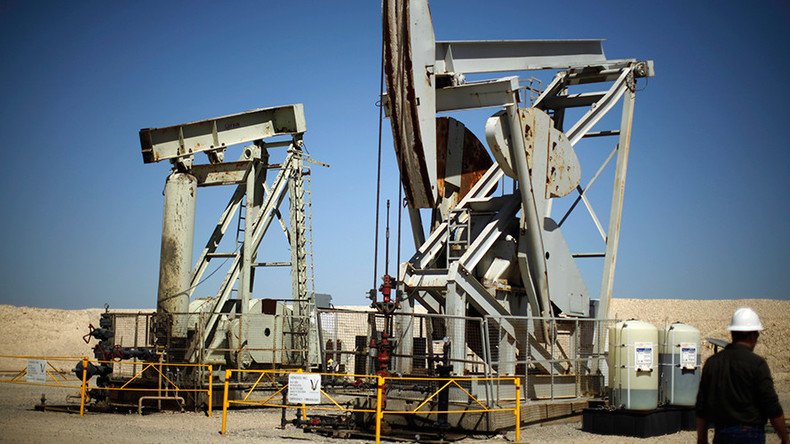Florida to vote on high-stakes fracking bill that won’t allow banning oil exploration

Despite concerns from environmentalists, a fracking bill will be voted on by the Florida House of Representatives. The bill seeks to establish a framework for fracking companies and prevent local governments from banning the practice.
The proposal would increase regulation of hydraulic fracturing by requiring groundwater inspections at each site before and after fracking takes place, the Miami Herald reported. However, the bill also bans local governments from passing ordinances to prevent the practice.
CBS Miami reports that oil and gas drilling has taken place in parts of Southwest and Northwest Florida, and that there are no laws against fracking in the state. However, one issue with fracking is the location energy companies seek to use.
The Florida Everglades are home to 30 endangered and threatened species, according to the National Park Services. Populations of iconic Floridian wildlife, such as the Florida Panther, depend on the delicate ecosystem for their species’ survival. But it is not just wildlife that relies on the Everglades. According to a 2013 Florida International University study, over 5 million people depend on Everglade aquifers for fresh water. Therefore, many environmentalists are concerned about the impacts of fracking.
The BBC explains that the process of fracking involves “drilling down into the earth before a high-pressure water mixture is directed at the rock to release the gas inside.” This creates a well that gas flows out of after a combination of “water, sand and chemicals are injected into the rock at high pressure.”
The problem comes from the aforementioned chemicals and water. Due to the porous limestone of the Biscayne Aquifer and the dependence on it for drinking water, the risk of contamination from the chemicals used is high.
“For every barrel of oil produced, 10 barrels of permanently hazardous, toxic water is produced [and] there is no safe or approved method to treat the potentially millions of gallons of backflow waste water,” Amy Datz, an environmental scientist with the Florida Climate Institute, told the Guardian.
Opponents of the bill fear the repercussions of chemicals seeping into the Biscayne Aquifer, a water system that is located “just below the surface of the land in South Florida,” according to the Florida Department of Environmental Protection (DEPA). The Biscayne Aquifer System runs below the Everglades and is the primary source of water for Dade and Broward Counties, Palm Beach, and also provides water to the Florida Keys.
The Florida DEPA explains that the Biscayne Aquifer consists of “highly permeable limestones and less permeable sand and sandstone.” In the location where the limestone is at its most porous, the absorbent rocks are covered by “a thin veneer of porous soil.” In addition, the water within the Biscayne Aquifer is free flowing and “generally flows toward streams, the ocean, and the extensive system of canals in south Florida.”
The state seeks to determine the impact on groundwater by conducting a one-year, $1 million study on the chemicals used in fracking, the Miami Herald reports. Regulations regarding disposal of contaminated water and chemicals would be written as a result of the study in 2017.
However, the chemicals in question would remain unregulated. Todd Sack, a Tallahassee physician, expressed concerns to the Miami Herald that the bill “allows drillers to hide any disclosure of chemicals used in the process by calling them a trade secret.”
Counties opposed to the practice are also concerned about their rights. The Broward County Commission proposed a county-wide ban on fracking earlier this month when Kanter Real Estate, LLC applied for a permit to begin drilling on the 20,000 undeveloped Everglade acres under their ownership, the Broward Palm Beach New Times reports. Sponsored by Commissioner Beam Furr, the ordinance claims that “Florida’s water supplies and resources are better protected through the prevention of contamination and environmental degradation, rather than the cleanup of contamination and restoration of degraded environments after the fact.”
However, both fracking bills in the Florida House and Senate would remove the ability of a county to ban fracking. As the Broward Palm Beach New Times explains, the bill would place the power to regulate the fracking industry exclusively in the hands of the state.












